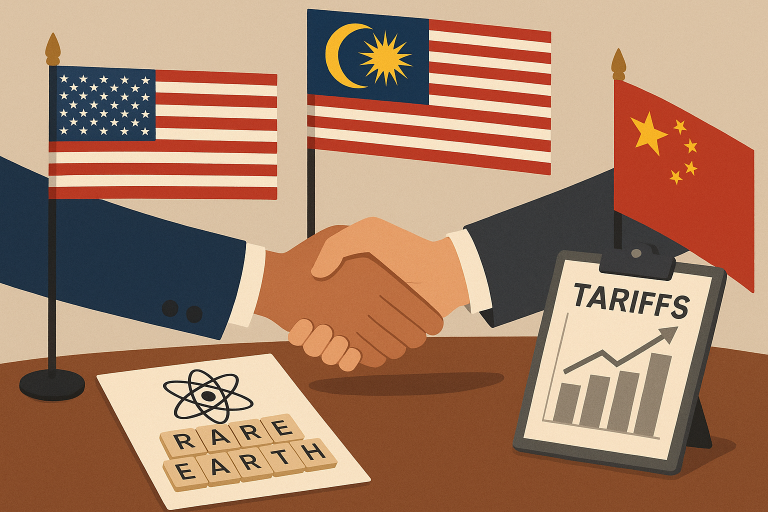The United States and China are set to resume high-level trade talks in Malaysia this weekend, as both sides work to defuse a new wave of economic tensions before President Donald Trump and President Xi Jinping meet in South Korea.
The discussions, led by US Treasury Secretary Scott Bessent and Chinese Vice Premier He Lifeng, will take place during the 47th ASEAN Summit in Kuala Lumpur, focusing on rare earth export controls, semiconductor trade, and tariff disputes that have once again strained relations between the world’s two largest economies.
Talks seek to reset strained trade ties
The two-day discussions, scheduled for Saturday and Sunday, mark the fifth round of high-level trade talks since spring.
US officials, including Trade Representative Jamieson Greer, will meet their Chinese counterparts in a bid to restore stability after months of escalating friction.
The renewed talks follow a series of confrontations over Beijing’s decision earlier this month to tighten export controls on rare earth elements—materials vital to global technology and defence supply chains.
In retaliation, President Trump threatened to impose a 100% tariff on Chinese goods, arguing that Beijing’s export restrictions were an attempt to weaponise critical resources.
China, however, maintains that the new rules are designed to regulate domestic industries rather than target foreign powers.
Both governments are now seeking to prevent further escalation ahead of a possible meeting between Trump and Xi at the Asia-Pacific Economic Cooperation (APEC) summit next week in South Korea.
Malaysia’s growing diplomatic role
The talks will be held on the sidelines of the ASEAN Summit, where Malaysia is hosting delegates from across Asia and the Pacific. As ASEAN chair, Malaysia has positioned itself as a neutral ground for dialogue between major powers.
Kuala Lumpur’s selection as the venue highlights its growing diplomatic influence and its role in facilitating economic cooperation in a region increasingly caught between US and Chinese interests.
US officials have acknowledged Malaysia’s contribution to easing communication between both sides.
Treasury Secretary Bessent said his team hopes to iron out differences before the presidential meeting, adding that it would be a key step towards ensuring a productive engagement between Trump and Xi since the US president’s return to office in January.
Rare earths, semiconductors, and supply chains
The trade tensions extend far beyond rare earth exports. The US has also been reviewing semiconductor tariffs and additional restrictions on products made with US technology that are exported to China.
Washington sees these measures as vital to national security, while Beijing argues they threaten global supply chains.
Malaysia has become central to these discussions due to its growing role in semiconductor assembly and packaging for global chipmakers.
Both nations recognise the country’s strategic value in maintaining a stable flow of components that power industries from electric vehicles to consumer electronics.
At the same time, US officials have been keen to reassure global markets that ongoing disputes with China will not derail regional growth.
Analysts note that the timing of the Kuala Lumpur meeting is critical, as the current trade truce between the two powers is set to expire on 10 November unless extended.
Setting the stage for Trump-Xi meeting
Treasury Secretary Bessent and Vice Premier He Lifeng are expected to use the Malaysia discussions to outline potential compromises before the presidential summit.
Both are key negotiators with longstanding ties to their leaders—Bessent to Trump’s economic team, and He as one of Xi’s closest economic advisers.
The White House confirmed that President Trump will travel to Malaysia and Japan this weekend before heading to South Korea for the APEC leaders’ summit, where he is expected to hold a brief pull-aside meeting with Xi.
Trump plans to discuss a range of issues, including China’s resumption of US soybean imports, nuclear disarmament, and Russia’s war in Ukraine.
The latest round of trade talks underscores both nations’ desire to maintain a fragile balance—seeking progress without conceding leverage.
As tensions mount over technology, tariffs, and geopolitics, Malaysia’s capital will serve as the backdrop for one of the most closely watched diplomatic exchanges of the year.
The post US-China trade talks in Malaysia aim to ease rare earth and tariff tensions appeared first on Invezz

